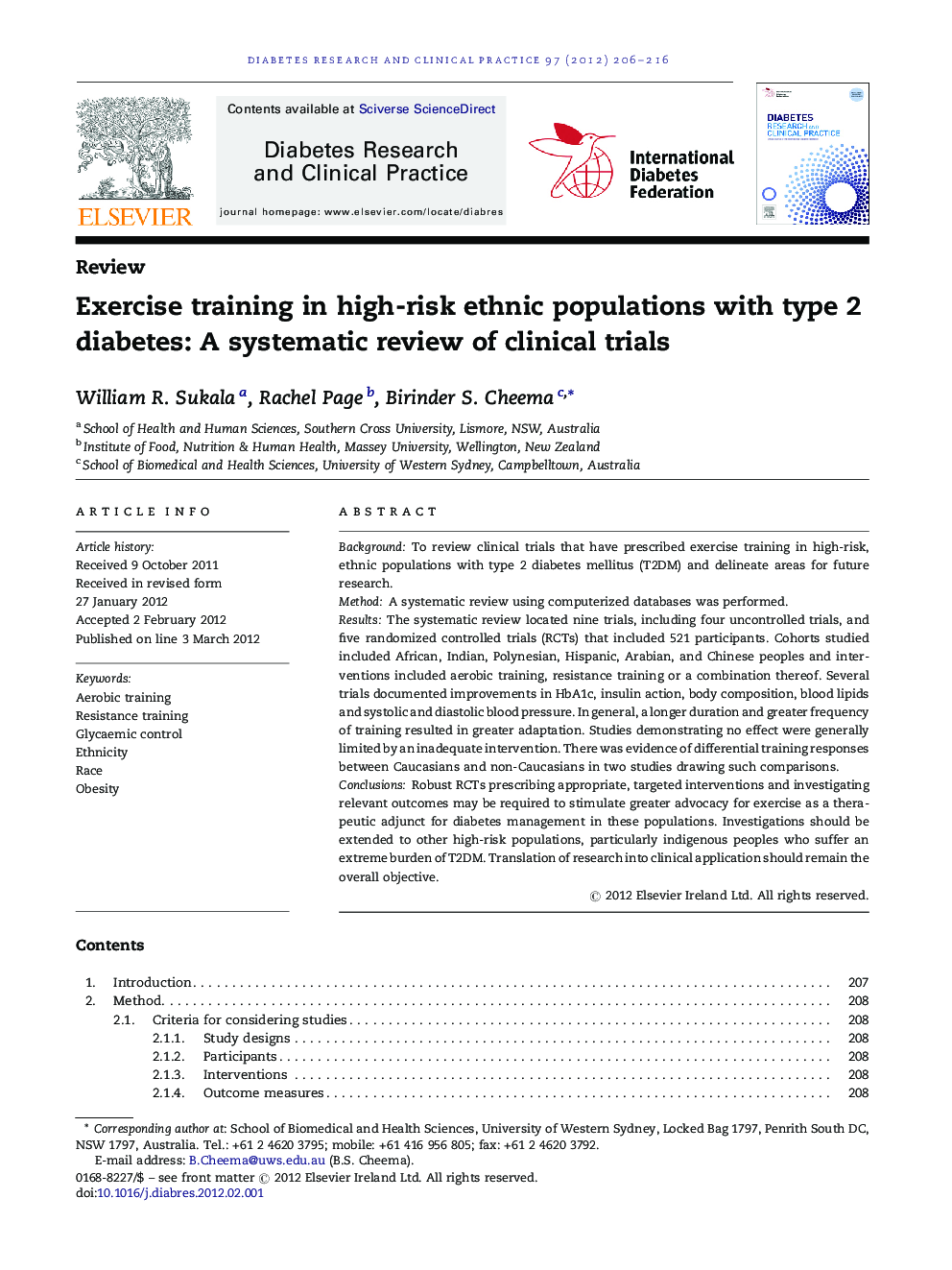| Article ID | Journal | Published Year | Pages | File Type |
|---|---|---|---|---|
| 2797109 | Diabetes Research and Clinical Practice | 2012 | 11 Pages |
BackgroundTo review clinical trials that have prescribed exercise training in high-risk, ethnic populations with type 2 diabetes mellitus (T2DM) and delineate areas for future research.MethodA systematic review using computerized databases was performed.ResultsThe systematic review located nine trials, including four uncontrolled trials, and five randomized controlled trials (RCTs) that included 521 participants. Cohorts studied included African, Indian, Polynesian, Hispanic, Arabian, and Chinese peoples and interventions included aerobic training, resistance training or a combination thereof. Several trials documented improvements in HbA1c, insulin action, body composition, blood lipids and systolic and diastolic blood pressure. In general, a longer duration and greater frequency of training resulted in greater adaptation. Studies demonstrating no effect were generally limited by an inadequate intervention. There was evidence of differential training responses between Caucasians and non-Caucasians in two studies drawing such comparisons.ConclusionsRobust RCTs prescribing appropriate, targeted interventions and investigating relevant outcomes may be required to stimulate greater advocacy for exercise as a therapeutic adjunct for diabetes management in these populations. Investigations should be extended to other high-risk populations, particularly indigenous peoples who suffer an extreme burden of T2DM. Translation of research into clinical application should remain the overall objective.
